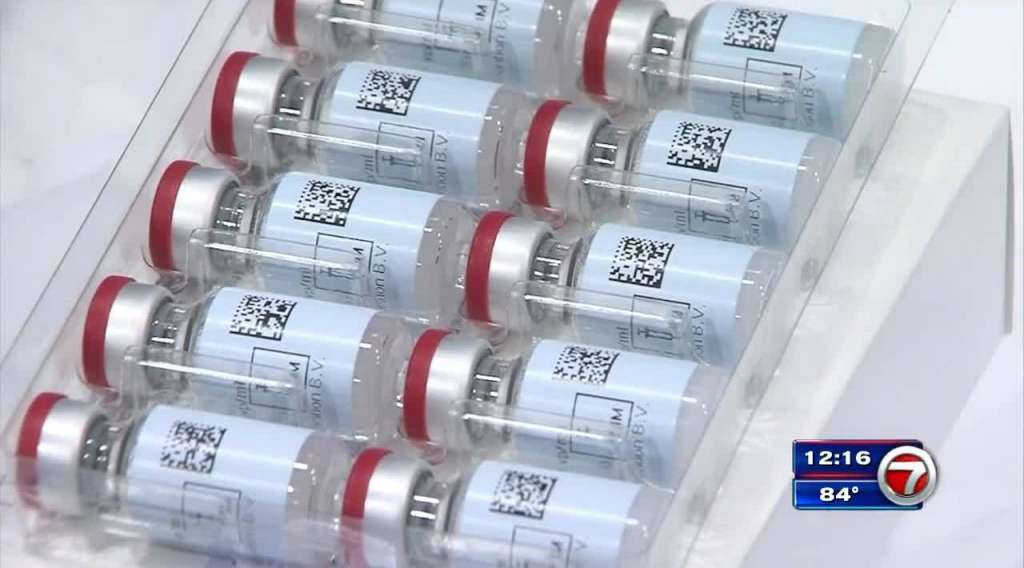(CNN) — Two reports released Thursday show that people who get booster doses of Johnson & Johnson’s Janssen vaccine are well protected against severe disease and hospitalization from the Omicron variant of coronavirus, the company said.
Researchers said the findings indicate that most of the Covid-19 vaccines will protect people against the worst outcomes from infection — and show some of the emphasis on how the various vaccines affect immune system components called antibodies may be misleading.
One real-life study from South Africa showed vaccine effectiveness against hospitalization from Covid-19 rose to 85% after a booster dose of the J&J vaccine, even after the Omicron variant was circulating. And a lab-based study in the US indicated the vaccine stimulates a strong immune response from cells known as T-cells, which protect people against severe disease even if they don’t block the virus entirely from infecting the body.
Results from both studies were released by the company in a statement but are being submitted to a pre-print server and a peer-reviewed journal, the company said.
A team at the South African Medical Research Council helped examine the results of an ongoing study of the J&J vaccine there. They looked at results from 69,000 health care workers. “When a booster shot was administered six to nine months after a primary single dose, vaccine effectiveness increased over time from 63 percent at 0-13 days, to 84 percent at 14-27 days and 85 percent at 1-2 months post-boost,” J&J said in a statement.
“Even before you factor in the increased infectiousness of Omicron, we have to remember that healthcare workers on the frontlines are at a greatly increased risk of being affected by COVID-19 in the first place,” Dr. Glenda Gray, president and CEO of the SAMRC, said in a statement.
“We are therefore encouraged to see that boosting with the Johnson & Johnson COVID-19 vaccine regimen provides strong protection in a challenging real-world setting where there is an elevated risk of exposure — not just to COVID-19, but to the highly transmissible Omicron variant.”
Separately, Dr. Dan Barouch and colleagues at the Beth Israel Deaconess Medical Center in Boston looked at blood taken from 65 vaccinated volunteers and tested it against the Omicron variant. They looked at both antibodies — the first line of defense against infection — and T-cells.
Using the J&J vaccine as a booster for people who originally got two doses of Pfizer/BioNTech’s vaccine generated a 41-fold increase in neutralizing antibodies and a five-fold increase in the CD8 killer T cells that destroy cells infected by the virus. That stops the virus from replicating and spreading. Boosting with the Pfizer vaccine generated a 17-fold increase in neutralizing antibodies and a 1.4-fold increase in CD8 T-cells four weeks later, they found.
“These data are important and these data are hopeful,” Barouch told CNN. They indicate that all Covid-19 vaccines can protect people from severe disease and death, even from the Omicron variant with all its mutations, he said.
“It has substantial global significance that goes well beyond J&J and goes well beyond South Africa,” he added. The same South African team reported in the New England Journal of Medicine on Wednesday that protection against hospitalization from two doses of Pfizer’s vaccine fell to about 70% when Omicron was circulating compared to 93% a few weeks earlier, when Delta was dominant in South Africa.
Barouch said many studies look only at antibodies, which can stop the virus from infecting cells at all. He said the T-cell response, which is trickier to measure, is important in providing long-term protection from severe disease.
“There’s confusion — not just in the media and the public but also among doctors and scientists — that only neutralizing antibodies equate with protection, and that’s just not true,” he said. “What we are seeing with 70% protection with Pfizer and now 85% protection with J&J — which is occurring at very low levels of neutralizing antibodies — strongly suggests T-cell responses are important in the protection that we are seeing.”
When viruses infect cells, they take over their internal machinery and turn them into little virus factories. While antibodies attach to the outside of viruses and stop them from ever docking to cells, T-cells seek out and destroy cells after they are infected. This may not completely stop infection, but it elps stop virus from spreading and causing severe illness.
Dr. Mathai Mammen, global head of research and development at J&J’s Janssen vaccine arm, agreed. “We believe that the protection could be due to the robust T-cell responses induced by the Johnson & Johnson COVID-19 vaccine. Furthermore, these data suggest that Omicron is not affecting the T-cell responses generated by our vaccine,” he said in a statement.
The findings may also reassure the millions of people who got the Janssen vaccine. Earlier this month, the US Centers for Disease Control and Prevention endorsed the Moderna and Pfizer/BioNTech vaccines over J&J’s, saying the two mRNA vaccines worked better and more safely than J&J’s, which is linked with a rare type of blood clotting event.
The mRNA vaccines use a newer technology that involves genetic material called messenger RNA, carried into the body by simple fatty compounds called lipids. J&J’s vaccine is an adenoviral vector vaccine, which uses a crippled common cold virus to carry the genetic instructions into the body.
J&J said the vaccine’s design is deliberately meant to elicit a robust T-cell response.
The-CNN-Wire™ & © 2024 Cable News Network, Inc., a Time Warner Company. All rights reserved.

